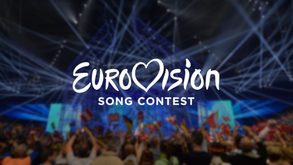 Naima Muminiy Staff Writer Known at the European pop-music Olympics, Eurovision is the longest running annual international TV song competition. Eurovision was created in the 1950s during the time Europe was divided with war, but as Europe rebuilt itself, the European Broadcasting Union (EBU) was created. The purpose of the EBU was to bring together the European countries of EBU through a light entertainment program. Eurovision takes place every year in the country of the previous winner. This year, Eurovision took place in Stockholm, Sweden. Måns Zelmerlöw represented Sweden in 2015 and won with the song “Heroes.” Jamala, representing Ukraine, won this year with the song “1944.” Jamala’s win has sparked controversy amongst the Eurovision community, claiming that “1944” was political and broke the rule that prohibited politically-oriented songs to be performed at Eurovision. “1944” is about the persecution of the Crimean Tatar ethnic group in Russia. The Crimean Tatars have been the most oppressed ethnic group out of the multiple of other minorities in Russia. Since Jamala is a Crimean Tatar, she sang about her people. Indigenous to Crimea, in 1944, they were deported from Crimea entirely. They were not allowed to go home after the reign of Stalin ended. In 1989, they returned as the USSR began to weaken.
Jamala’s song included lyrics such as, “They come to your house / They kill you all-” referring to the events that happened seventy-two years ago, but this was defended as historical rather than political. This has mainly caused outrage towards Russia due to the country obtaining the popular vote. Sergey Lazarev represented Russia with the song “You are the Only One” and placed third in the contest. Worry sparked that if Russia were to win, the contest in 2017 would be held in a country with controversial laws regarding homosexuality. Eurovision is well known for its strong LGBT+ following. Despite this, Lazarev has told BBC news that the LGBT+ community would have been welcomed to Russia if they won. “Gay life exists in Russia,” he said. “There is more talk and rumors about problems than exist. I just want you to come and see everything for yourself.” There have been complaints that Eurovision has become more political each year, and the sole purpose of cultural diversity and art has been lost. There is much to be anticipated with next year’s contest in Ukraine. Comments are closed.
|
Archives
March 2017
Categories
All
|

